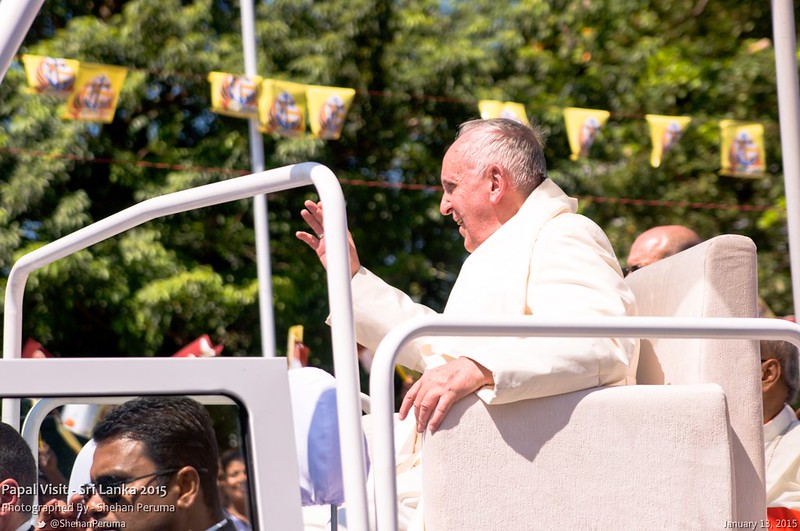
Photo credit: Shehan Peruma
The Vatican has announced the passing of Pope Francis, the first Pope from Latin America and the first Jesuit, at the age of 88. He was admitted into Rome’s Gemelli hospital on 14 February suffering from pneumonia and a complex lung infection.
As tributes across the globe continue to pour in, Tamil Guardian reflects upon his 2015 visit to the Tamil homeland.
Sinhala Buddhist opposition
The Pope visited Sri Lanka in January 2015, just days after the election defeat of Mahinda Rajapaksa.
It was his first visit to the island following the brutal genocide of 2009. Tens of thousands of Tamils were killed by indiscriminate shelling from the Sri Lankan military, summary executions and mass sexual violence.
Even before he had arrived on the island, Sinhala Buddhists were up in arms.
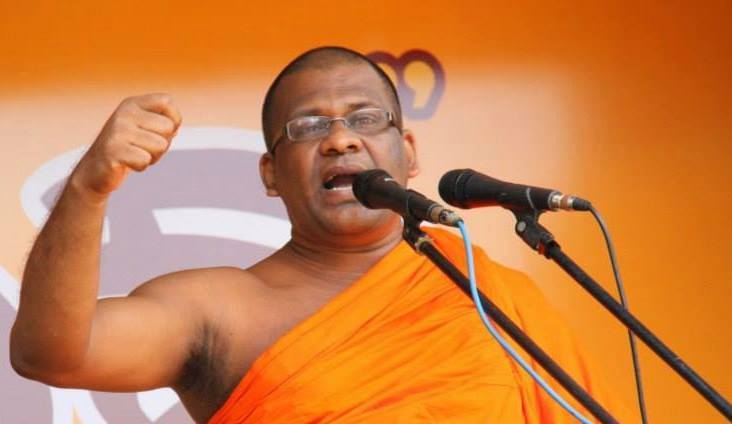
“We are waiting till the Pope comes to see what he is going to say about the crimes here,” said Sinhala Buddhist monk Galagoda Atte Gnanasara, a leader of Bodu Bala Sena (BBS), or Buddhist Power Force group.
“The Portuguese, Dutch and the British are all the same to us,” he said referring to the countries that had established colonies in Sri Lanka one after another from 1505 to 1948. Roman Catholicism was established in Sri Lanka by the Portuguese, while the Dutch and the British established their own Christian denominations.
“Previous Popes had made public apologies to certain countries because they destroyed, they killed. We had a similar situation, most of the Buddhist temples were destroyed by them (they) killed Buddhist monks. We would like to see that public apology from him,” said Gnanasara.
A call for justice
Speaking in Colombo, the Pope made clear remarks on the violence that had scarred the island.
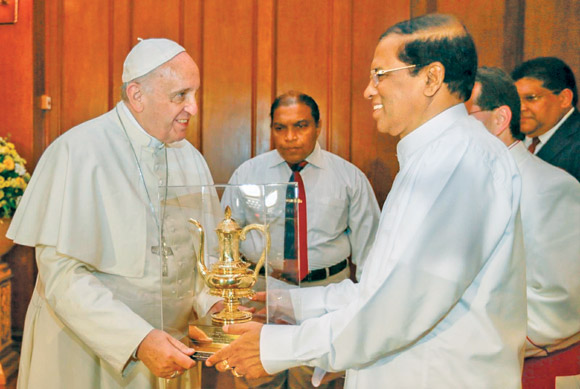
Just moments after he touched down in Colombo, the Pope said that peace could be found by "cultivating those virtues which foster reconciliation, solidarity and peace".
He stressed that the “pursuit of truth” was a necessary prerequisite for justice.
"It is no easy task to overcome the bitter legacy of injustice, hostility and mistrust left by the conflict," he said.
"It can only be done by overcoming evil with good and by cultivating those virtues which foster reconciliation, solidarity and peace. The process of healing also needs to include the pursuit of truth, not for the sake of opening old wounds, but rather as a necessary means of promoting justice, healing and unity.”
The first Pope to visit Tamil Eelam
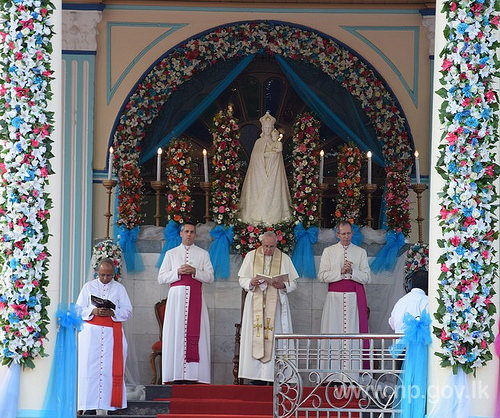
During this visit he also travelled to the Tamil homeland, becoming the first visit by a pope to the region.
Francis gave a speech at the Church of Our Lady of Madhu in Mannar, the most venerated Catholic site on the island which contains a 400-year old statue of Mary. The Church had previously been targeted by the Sri Lankan military. In November 1999, the church was subject to shelling which claimed the lives of 44 people seeking refuge there. In 2008 the Sri Lankan army shelled the region despite knowing that the church was acting as a refugee camp.
More than half a million people were reported to visit Mannar to receive his blessings.
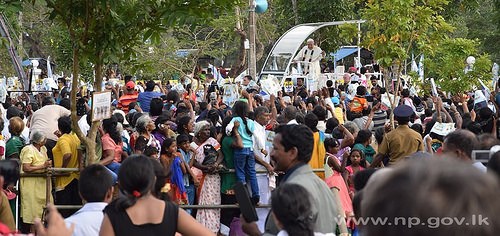
Francis denounced the “evil” conflict that “tore open the heart” of the island during his address, reiterating his earlier call for justice.
“May all people here find inspiration and strength to build a future of reconciliation, justice and peace for all the children of this beloved land,” he said.
The Pople also met with several religious leaders and dignitaries including the then Bishop of Mannar Rayappu Joseph.
“People of all communities have suffered due to the war, with people in the North and East undergoing the worst of it," said Bishop Joseph. "It is important for the Pope’s message to be spread among, not only people in these areas, but also in the South, so that we can bring about true reconciliation.”
A group of Tamils also delivered a letter to the pope after the prayer service. “No genuine attempts have been made to address the root cause of the problems” between the Sinhalese government and Northern Tamils, said Tamil rights activist Father Jeyabalan Croos. “Genuine reconciliation is not possible unless there is credible accountability.”
Ananthy Sasitharan, a then-member of the Northern Provincial Council, pointed out that “hundreds of Tamils are still waiting to seek justice for disappeared [family members], political prisoners and sexual harassment.”
Sasitharan wrote to Francis ahead of his visit, stating,
"As a member of the Northern Provincial Council and as one of the affected victims, I urge Your Holiness to reach out for us in demanding a clear answer from the Sri Lankan Government and its military on what had happened to Rev Fr Francis Joseph, the hundreds of our family members and relatives who were taken into SLA custody on 18 May, 2009."
"During your visit, the Sri Lankan political leaders, including the newly sworn-in President Maithiripala Sirisena, who was the deputy defence minister during the genocidal onslaught when Fr Francis Joseph was taken away by his military, will be fighting for the opportunity to kiss your hand and get your blessings. Just as his predecessor Mahinda Rajapksa, who invited you to the island amidst his election plan, the political leaders and their military commanders of the Colombo government are seeking to protect themselves and their system from its crime of genocide."
"Your Holiness, please do not be fooled by their false promises on protecting ‘minorities’. In fact, transforming Tamils into their ‘minorities’ was their first step in the genocide."
The letter to the Pope concluded by saying,
"I hope you will be able to listen to the victims and at least gain a direct sense of the real nature of the crime during your short stay in the Northern Province."
"Most Holy Father, I hope that your visit will be a step in bringing justice to hundreds and thousands of people, among them a large number of Tamil Catholics, who need the voice of Vatican at this critical juncture."
